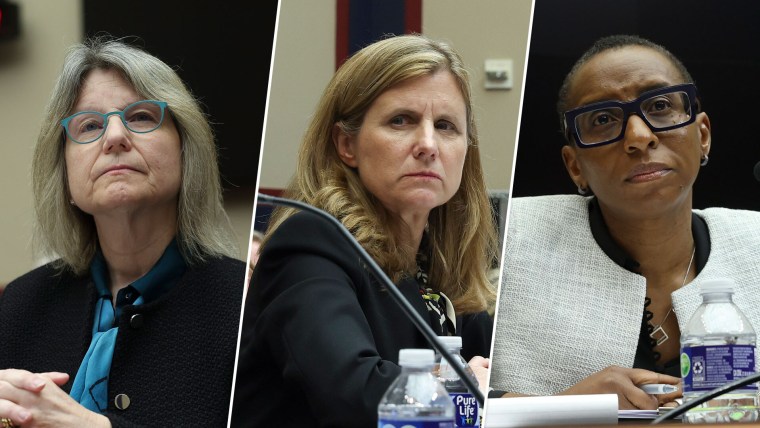House Republicans put a resolution condemning antisemitism up for a vote on Tuesday. At first blush, that seemed like a laudable gesture. Antisemitism is on the rise around the world, and any spread of bigotry should and must be fought. But the resolution also contained controversial language declaring that “anti-Zionism is antisemitism.” That wording conflates criticism of Israel with bigotry against Jews, and the intention of such language is to discourage critical debate over Israel in Washington.
The measure passed 311 to 14, with scores of Democrats joining Republicans. But more Democrats saw through the GOP’s tactics than that lopsided result might suggest — 92 voted present. That was a small but promising sign that Democrats are aware that Republicans are cynically trying to weaponize the issue of antisemitism, using it as a way to shield Israel from criticism as it wages an increasingly polarizing war in the Gaza Strip.
It’s audacious for a party that’s taken an aggressive white nationalist turn to try to pull off this tactic.
Anti-Zionism can mean different things to different people, and sometimes serves as a vehicle for antisemitism. Some people have criticized Zionism or Zionists in a veiled attempt to advance antisemitic conspiracy theories, or to argue that Israel should be ethnically cleansed of Jews. That kind of anti-Zionism is racist and deplorable.
But it isn’t inherently so — the Jewish Voice for Peace, a left-wing, anti-Zionist Jewish social movement, sums up anti-Zionism as criticism of Israeli state policies or its ethno-state ideology. There are many antiracist ways to criticize Zionism, and there’s a long, rich history of such that comes from myriad religious and political quarters of the Jewish community itself. Some Jewish groups object to Zionism on theological grounds — seeing it as blasphemous because they believe only the messiah can bring about the true Israel. There are also liberal and left-wing Jewish criticisms of Zionism that date back to at least the early 20th century that take issue with the ideology as a contributor to dual loyalty antisemitism, or as a settler-colonial ideology. Today some of the leading voices critical of Israeli treatment of Palestinians are Jewish groups and commentators who reject or sharply critique Zionism — like Jewish Voice for Peace and the periodical Jewish Currents. And progressive Israelis have objected to “the Zionist paradigm” as the culprit for Israeli-Palestinian inequity. Of course people outside the Jewish community can also criticize Zionism uncoupled from antisemitism — including Palestinians displaced and discriminated against by the project of Israel who favor a two-state solution or a single secular democratic state.

The belief that anti-Zionism isn’t inherently antisemitic is why three Jewish House Democrats — Reps. Jerrold Nadler and Daniel Goldman of New York and Jamie Raskin of Maryland — urged fellow Democrats to vote “present” on the resolution. “Under this resolution, those who love Israel deeply but criticize some of its policy approaches could be considered anti-Zionist,” Nadler, the longest-serving Jewish member of the House, said in a floor speech. “That could make every Democratic Jewish member of this body, because they all criticized the recent Israeli judicial reform package, de facto antisemites. Might that be the author’s intention?”
It’s audacious for a party that’s taken an aggressive white nationalist turn to try to pull off this tactic. The party’s de facto leader, former President Donald Trump, bellows antisemitic tropes, boosts antisemitic white supremacists online and found the 2017 Charlottesville neo-Nazi gathering to have had some “very fine people.” The MAGA movement is a cesspool of antisemitic conspiracy theories. Some right-wingers would try to push back by calling attention to the GOP’s commitment to unconditionally supporting Israel and Zionism. But as many Jewish commentators have pointed out, there is a long and dark history of people identifying as friends of Zionism on religious or geostrategic grounds who are flagrant antisemites.
The Republicans tried putting liberal and progressive Democrats in a bind by daring them to vote against a resolution that was outwardly only about antisemitism. Insofar as the resolution passed with just 14 objections, they succeeded. But one hopes that with comments like Nadler’s, which got some traction online, and critical commentary about it in the media, the Democrats will grow bolder in pushing back against such tactics over the long term.

